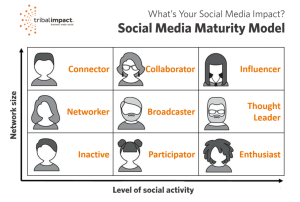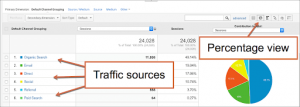It is that time of the year again! For many people, November means shorter days, colder weather, and a countdown to the holidays – but for marketers and retailers, it’s the busiest time of the year and there’s a lot to do between now and the New Year. In this blog, we’re looking back at last year’s holiday shopping season and sharing our predictions for what’s to come in the weeks ahead.
Looking back at 2020
Despite unprecedented challenges, consumers and retailers demonstrated incredible resilience throughout the 2020 holiday season. Faced with rising transmission of the virus, restrictions on retailers and heightened political and economic uncertainty, consumers chose to spend on gifts that lifted the spirits of their families and friends and provided a sense of normalcy.
Black Friday and Saturday 2020 saw tremendous growth in online activity. For the first time, the number of online Black Friday shoppers passed the 100 million mark, up 8 percent over last year. Overall, online-only shoppers increased by 44 percent for the entire weekend, spending a total of $ 95.7 million*.
Over 40 percent of holiday shoppers said they started earlier than they normally would in 2020, according to the annual survey by the National Retail Federation and Prosper Insights & Analytics.
So what were people buying? Last holiday season saw year-over-year gains in six out of nine retail categories, led by double-digit increases for building materials, sporting goods stores and furniture. Let’s take a look at how 2021 may compare…
2021 Predictions
From rethinking the holiday shopping timeline to reimagining traditional sales events, retailers are actively planning ahead to ensure they are ready to meet consumers’ 2021 holiday shopping needs – despite the supply chain issues impacting the industry.
According to the National Retail Federation, holiday sales for 2021 are expected to increase by 8.5-10.5% compared to 2020, generating between $ 843.4 billion and $ 859 billion.
Last year saw extraordinary growth in digital channels as consumers turned to online shopping to meet their holiday needs during the pandemic. While ecommerce will remain important, households are also expected to shift back to in-store shopping and a more traditional holiday shopping experience. Plans to shop online are down 3% from 2020, up 1% from 2019 (pre-pandemic) and it’s still the largest destination for consumers to make purchases this holiday season.
Over the last decade, consumers have been kicking off their holiday shopping early in order to spread out their budgets and avoid the stress of holiday shopping. This year, shoppers started earlier than ever, with half (49%) beginning to browse or buy before we even hit November. With the prospect of consumers seeking to shop early, inventories may be pulled down sooner and shortages may develop in the later weeks of the shopping season. However, if retailers can keep merchandise on the shelves until Christmas, this season could potentially shatter previous records.
*Source: National Retail Federation calculations based on U.S. Census Bureau data as of April 2021
NRF holiday spending is defined as the months of November and December.
Business & Finance Articles on Business 2 Community(30)
Report Post






